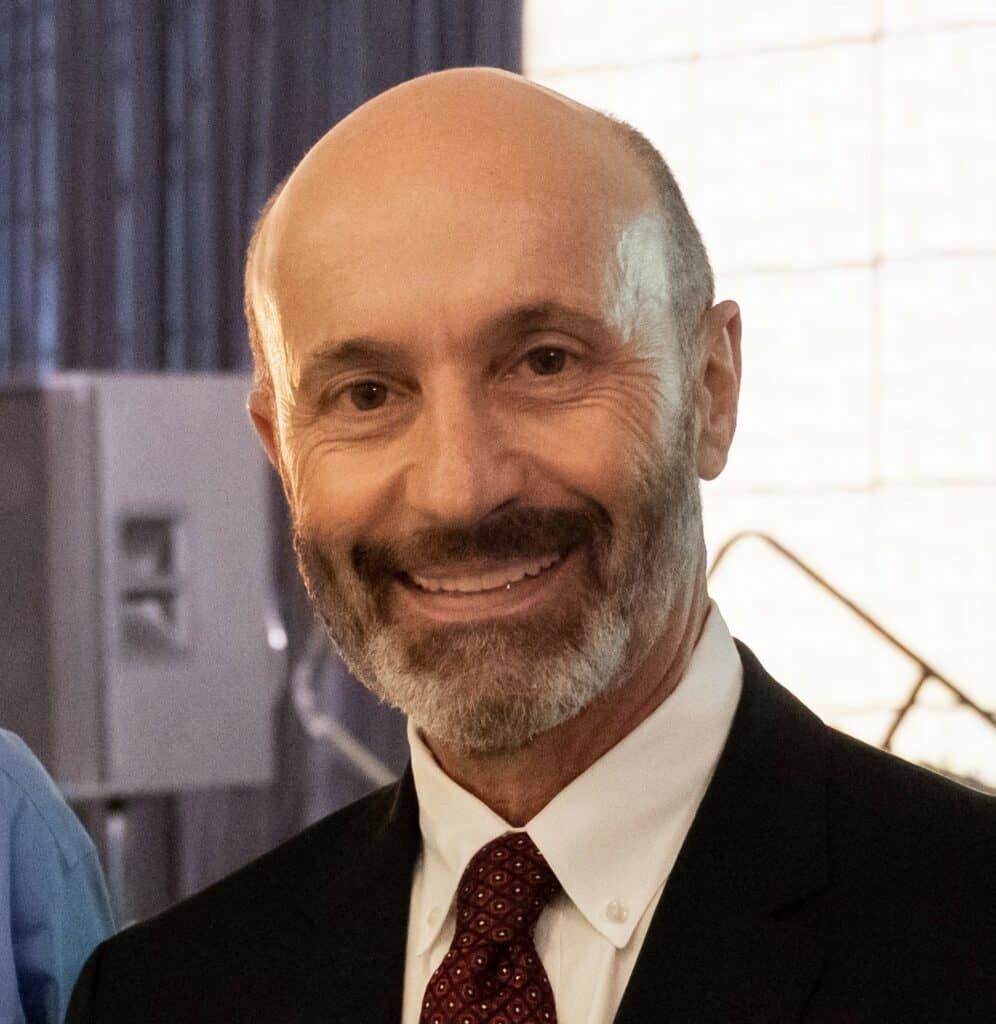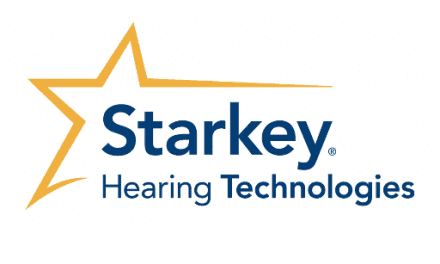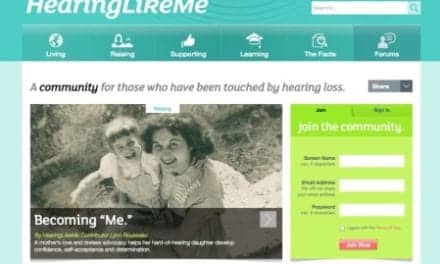Industry Insider | November 2021 Hearing Review
By Douglas L. Beck, AuD
Could reductions in the quality of sensory input (including hearing loss) in older adults result in less efficient cognitive functioning? Alternatively, can we improve cognitive processing in older adults by improving the quality of the sensory input? Are there better and more valid ways to test cognitive abilities across life span relative to hearing and speech abilities? What are some of the key factors that govern the perception of emotions in speech?
These are just a few of the research questions being undertaken by Boaz M. Ben-David, PhD, and his colleagues. An associate professor in the School of Psychology at the Reichman University (IDC) in Herzliya, Israel, Dr Ben-David heads the Communication, Aging and Neuropsychology Lab (CANlab), and he also holds adjunct faculty positions at the University of Toronto and the Toronto Rehabilitation Institute. He has published over 60 peer-reviewed papers and chapters and received many awards and grants, as well as created over 40 educational podcasts and videos which are available at: www.canlab.idc.ac.il.
With research continually finding new links between hearing and cognition, we thought it would be exceptionally interesting to get the perspectives of Dr Ben-David.
Beck: Hi Boaz. It’s an honor to meet with you!
Ben-David: Thanks Doug. I appreciate your kind invitation.
Beck: I read your recent article, “Cognition and Hearing–You Can’t Test One without the Other”1 regarding the interaction between cognition and audition, so let’s jump right in. In 1949, Dr Myklebust noted that, for audiology to mature, it must recognize the influence of special education, psychology, and psychiatry.2 In particular, he reported that clinical psychology has an important contribution to make and a role to play regarding audiology.
Ben-David: That was very insightful of him to write that over 70 years ago, and I agree! The overall idea is that in the last 20 years, we see more and more evidence that hearing loss negatively affects cognition, and we suspect that hearing aids may positively impact cognitive performance.
For example, the Lancet Commission’s report3 states the greatest modifiable risk for dementia is hearing loss. Further, we know that different types and degrees of cognitive decline and dysfunction interact negatively with the ability to understand and make sense of speech. And of course, sensory input—in this case, hearing—has an impact on cognition.
So, at the end of the day, I think it is apparent that untreated hearing loss is a significant risk factor for cognitive health; this is clear from the published research. It follows that speech processing, or comprehending the meaning of the words or the sentences of a story, involves cognition. Additionally, decreases in cognitive reserve will negatively impact speech-in-noise (SIN) ability, too.
So, yes, Dr Myklebust was decades ahead of his time!
Beck: We’re in total agreement here. I’d like to get your thoughts about verbally-presented or spoken cognitive screenings and diagnostic tests. The reason this is so interesting to me is that one-third of the population over age 65, and one-half of the population over age 75, have hearing loss.
Ben-David: That is a very important point. As we often have to assess older adults for their cognitive abilities, it makes good sense to make sure the patient can hear you properly prior to the assessment! If the patient cannot hear you at an appropriate or excellent signal-to-noise ratio (SNR), if the test is not in their native (or a similarly competent) language, if the patient is not motivated to do their best (which can happen when they’re tired or when the patient believes they are expected to fail, such as a stereotype threat)…all of these things can negatively impact their test result.
Conversely, when the audiologist tests a patient’s ability to understand speech in noise using the HINT, the QuickSin, the BKB or Beck-Benitez tests, etc, the patient’s cognitive status will impact the audiometric results.
So, again, Dr Myklebust was correct: auditory processing, listening, language, cognition, and more, are all dependent on each other and interrelated. One cannot test any or either in isolation of the others. Cognition, language, and auditory processing problems are not silos. Indeed, they can exist, co-exist, and they can exist in-tandem.
Beck: And to make matters worse, most hearing tests typically involve only the detection or perception of pure-tones, along with perhaps speech in quiet. In fact, when most people think about hearing tests, they think about pure-tone tests, such as “press the button when you hear the beep.” The thing is, that merely tests and measures detection, not how the brain makes sense of, or comprehends sounds, and there is no relationship between pure tones (normal or elevated) and the ability to understand speech in noise (SIN). Of course, this is very important because the primary complaint of most people with hearing and listening disorders is the inability to understand speech in noise, while most screenings and tests are about detecting pure tones. That is, some 85% of our hearing tests do not include SIN measures despite clear Best Practice (BP) guidance by AAA, ASHA, IHS, and others, and despite Raymond Carhart clearly stating some 50 years ago [in 1970] that all audiometric evaluations should include SIN measures.
Ben-David: Yes, this is another important issue. We cannot find what we don’t look for. Your published work with Dr Danhauer indicated that some 38 million people in the United States have hearing loss on an audiogram, yet an additional 26 million people have suprathreshold listening disorders without any audiometric threshold deficits.4 So we need to dig deeper. We need to examine the person as a whole—the person using their ears and their brain together—and we need to practice and understand at a deeper level.
Physicians are taught “Diagnosis first, treatment second.” The same general principle should apply for all medically related disciplines. Further, if we do not standardize and adjust tests to fit the experience, complaints, and observations of the older patient, then the tests are age-inappropriate or ageist, as my colleagues and I suggested in a recent book chapter.5
Beck: And if the diagnosis isn’t complete and accurate, it’s not likely the proposed solution will be the best solution. Nonetheless, for people with hearing difficulty and/or speech-in-noise problems in the presence of normal thresholds, we should stop telling them their hearing is normal. To borrow your own phrasing, suprathreshold listening disorders and SNHL are not silos. People can have either, or both, or neither. However, a common mistake we make is when we determine the patient has SNHL, we most often do not perform a SIN test. We tend to base everything on pure-tone thresholds, which could lead us to what appears to be the obvious, yet incorrect, solution.
Specifically, many people with SIN problems don’t need sound louder, they need it clearer, and that can be measured in just a few minutes using a SIN test. The results of that test tells us which type of technology to try.
Boaz, please tell me about your recent study involving cognitive training and speech in noise.
Ben-David: Sure. I contacted a company which developed a cognitive training program. I told them I wanted to see if their cognitive training impacts speech processing in noise for older adults, using a new paradigm developed in my lab, coined E-WINDMIL (Eyetracking of Word Identification in Noise Under Memory Increased Load). In simple terms, the test involves following spoken instructions presented in noise. The listener is asked to retain either 1 or 4 digits (low load or high load) for later recall. Eye-fixations on a named target-object are compared to fixations on an object whose name shares phonology (eg, toweR vs toweL) as the spoken word (named target-object) unfolds in time.
Earlier work in my lab with eye tracking pointed to the important role of cognition in speech processing for young6 and older adults.7 This is a work in progress, but we have submitted our initial results for publication. What we found is that training indeed improved older adults’ speech processing in adverse conditions, as compared to a no-training control group. These results are especially important, as the cognitive training did not involve any auditory or language processing tasks, suggesting a central role for cognition in speech processing—something a pure-tone audiometric test cannot uncover.
Beck: Exciting work! I cannot wait to read the published study. Before I let you go, I’d like to get your thoughts about audiologists and other healthcare professionals performing cognitive screenings?
Ben-David: I love this idea for many reasons. If a cognitive screening allows a healthcare professional to refer the patient to the right professional, you might save a life or perhaps improve the quality of life for a patient. It is so important to consider the whole person and their situation. As you and Dr Flexer have written in Hearing Review, “listening is where hearing meets brain.”8
Beck: Thanks Boaz. You are a joy to speak with and I very much appreciate your time and insight!
Ben-David: Thank you, Doug.
Douglas L. Beck, AuD, is the Vice President of Academic Sciences at Oticon Inc, Somerset, NJ. He has served as Editor in Chief at AudiologyOnline and as Web Content Editor for the American Academy of Audiology (AAA). Dr Beck is an Adjunct Clinical Professor of Communication Disorders and Sciences at the State University of New York at Buffalo, and also serves as Senior Editor of Clinical Research for The Hearing Review’s Inside the Research column.
CORRESPONDENCE can be addressed to Dr Beck at: [email protected].
Citation for this article: Beck DL. Aging, hearing, cognition, and neuropsychology: Interview with Boaz M. Ben-David, PhD. Hearing Review. 2021;28(11):30-31.
References
- Ben-David BM. Cognition and hearing–You can’t test one with the other! ENT & Audiology News. 2021;30(1).
- Myklebust HR. The relationship between clinical psychology and audiology. J Sp Hear Disord. 1949;14(2):98-103.
- Livingston G, Sommerlad A, Orgeta V, et al. Dementia prevention, intervention, and care. Lancet. 2017;390(10113):2673-2734.
- Beck DL, Danhauer JL. Amplification for adults with hearing difficulty, speech in noise problems–and normal thresholds. J Otolaryngol ENT Res. 2019;11(1):84-88.
- Ben-David BM, Malkin G, Erel H. Chapter 17: Ageism and neuropsychological tests. In: Ayalon L, Tesch-Römer C, eds. Contemporary Perspectives on Ageism. 1st ed. Springer Publishing; 2018:277-297.
- Nitsan G, Wingfield A, Lavie L, Ben-David BM. Differences in working memory capacity affect online spoken word recognition: Evidence from eye movements. Trends in Hearing. 2019;23:1-12.
- Harel-Arbeli T, Wingfield A, Palgi Y, Ben-David BM. Age-related differences in the online processing of spoken semantic context and the effect of semantic competition: Evidence from eye gaze. J Speech Lang Hear Res. 2021;64(2):315-327.
- Beck DL, Flexer C. Listening is where hearing meets brain…in children and adults. Hearing Review. 2011;18(2):30-35.








